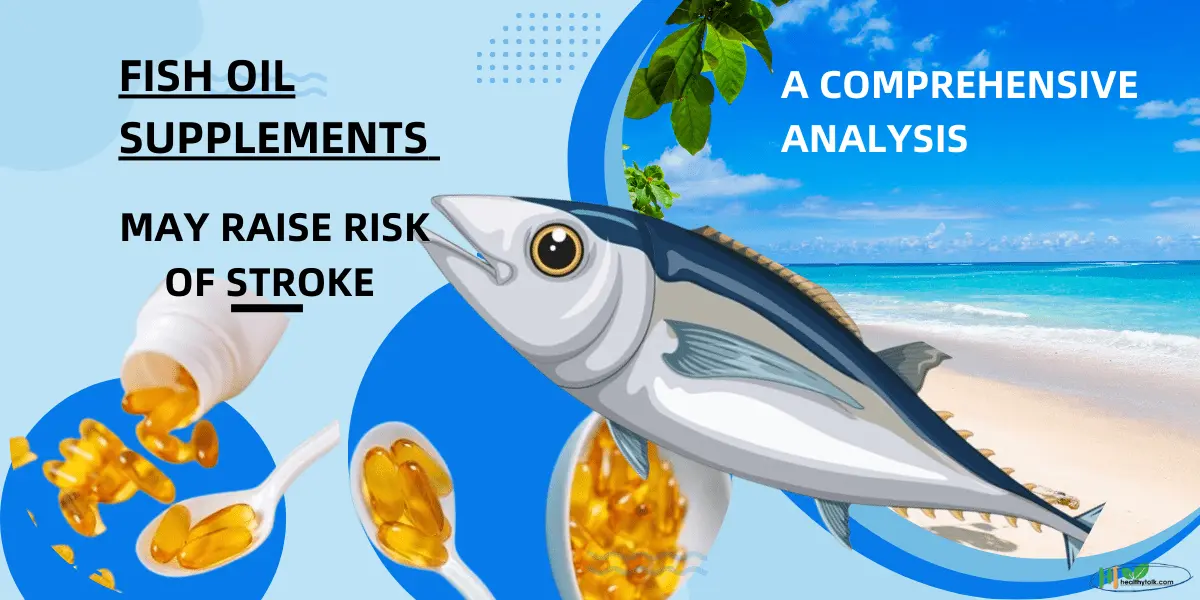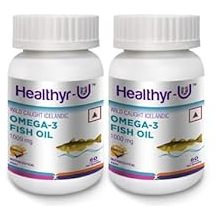A study suggested by Dr. Andrew Freeman, director of cardiovascular prevention and wellness at National Jewish Health in Denver, raises concerns regarding the potential associated with fish oil supplements may raise risk of stroke particularly. This article delves into the intricacies of this study and its implications for public health on his study.
Introduction
In recent years, the consumption of fish oil supplements may raise risk of stroke has gained popularity due to their perceived health benefits. However, a study suggested by Dr. Andrew Freeman, director of cardiovascular prevention and wellness at National Jewish Health in Denver, raises concerns regarding the potential risks associated with fish oil supplements, particularly in relation to stroke. This article delves into the intricacies of this study and its implications for public health.
Defining the Issue
Fish oil supplements, derived from fatty fish like salmon and mackerel, are rich in omega-3 fatty acids, which have been touted for their cardiovascular benefits. These supplements are often marketed as a means to lower the risk of heart disease and stroke.
Relevance and Importance (fish oil supplements may raise risk of stroke)
Understanding the potential risks of fish oil supplements is crucial for individuals seeking to improve their cardiovascular health. With the widespread use of these supplements, it is essential to critically evaluate their efficacy and safety.
Types and Categories
Omega-3 Fatty Acids
Eicosapentaenoic Acid (EPA): Found in marine sources, particularly fish oil supplements.
Docosahexaenoic Acid (DHA): Another omega-3 fatty acid present in fish oil supplements.
Symptoms and Signs
While the symptoms of stroke are well-documented, the association between fish oil supplements may raise risk of stroke and stroke risk requires further investigation. Symptoms of stroke include:
Abrupt onset of tingling or diminished strength in the facial area, upper limb, or lower limb, notably affecting only one side of the body.
Confusion, trouble speaking, or understanding speech.
Difficulty walking, dizziness, loss of balance, or coordination.
Causes and Risk Factors (fish oil supplements may raise risk of stroke)
Potential Mechanisms
Increased Bleeding Risk: Omega-3 fatty acids may interfere with blood clotting mechanisms, potentially increasing the risk of bleeding events, including hemorrhagic stroke.
Interaction with Medications: Fish oil supplements may interact with blood thinners and other medications, exacerbating their effects.
Diagnosis and Tests
Diagnostic Tools
MRI: Magnetic Resonance Imaging (MRI) scans are commonly used to diagnose stroke and assess brain damage.
CT Scan: Computed Tomography (CT) scans provide detailed images of the brain, aiding in the diagnosis of stroke.
Treatment Options
Medical Interventions
Antiplatelet Medications: Drugs such as aspirin are prescribed to prevent blood clot formation and reduce the risk of stroke.
Anticoagulants: Blood thinners like warfarin are used to prevent blood clots from forming or growing larger.
Preventive Measures
Lifestyle Modifications
Healthy Diet: Emphasize whole foods rich in omega-3 fatty acids, such as fatty fish, flaxseeds, and walnuts, rather than relying solely on supplements.
Regular Exercise: Engage in moderate-intensity exercise to improve cardiovascular health and reduce stroke risk.
Personal Stories or Case Studies
To illustrate the potential impact of fish oil supplements on stroke risk, consider the following scenario:
Case Study: Sarah’s Experience
Sarah, a 55-year-old woman with a family history of cardiovascular disease, began taking fish oil supplements daily in an effort to improve her heart health. Despite her efforts, Sarah suffered a hemorrhagic stroke, prompting her to reevaluate her supplement regimen.
Expert Insights
Dr. Andrew Freeman advised that caution should be exercised when considering the use of fish oil supplements, particularly for individuals who are at risk of stroke, despite the potential cardiovascular benefits associated with omega-3 fatty acids.
Conclusion (Fish Oil Supplements May Raise Risk of Stroke)
In conclusion, the relationship between (fish oil supplements may raise risk of stroke) and stroke risk is complex and warrants further investigation. While omega-3 fatty acids offer potential benefits for cardiovascular health, individuals should be mindful of the potential risks associated with supplementation. Consulting with a healthcare professional is advisable before initiating any new supplement regimen.
(FAQs): Fish Oil Supplements May Raise Risk of Stroke
1. Are fish oil supplements safe to take?
While fish oil supplements have been widely regarded as safe, recent studies have raised concerns about potential risks, particularly in relation to stroke.
2. What are the potential risks associated with fish oil supplements?
Some studies suggest that fish oil supplements may increase the risk of stroke, particularly hemorrhagic stroke, due to their effects on blood clotting mechanisms.
3. Can fish oil supplements benefit cardiovascular health?
Omega-3 fatty acids, found in fish oil supplements, have been associated with various cardiovascular benefits, including reducing triglyceride levels and lowering blood pressure.
4. Should I stop taking fish oil supplements?
Individuals currently taking fish oil supplements should consult with their healthcare provider to discuss the potential risks and benefits based on their individual health status and medical history.
5. Are there alternative sources of omega-3 fatty acids?
Yes, omega-3 fatty acids can be obtained from dietary sources such as fatty fish (e.g., salmon, mackerel), flaxseeds, chia seeds, and walnuts, without the need for supplementation.
6. Fish Oil Supplements May Raise Risk of Stroke: A Comprehensive Analysis
Adopting a healthy lifestyle, including maintaining a balanced diet, engaging in regular exercise, managing stress, and avoiding smoking, can help reduce the risk of stroke.
7. Is there ongoing research into the effects of fish oil supplements?
Yes, researchers continue to investigate the potential benefits and risks of fish oil supplements, including their impact on cardiovascular health and stroke risk.
8. Can fish oil supplements interact with medications?
Fish oil supplements may interact with certain medications, particularly blood thinners, so it is important to inform your healthcare provider about any supplements you are taking.
9. Are there specific populations who should avoid fish oil supplements?
Individuals with a history of bleeding disorders, those taking blood thinners, or those at risk of hemorrhagic stroke may need to exercise caution when considering fish oil supplementation.
10. Where can I find reliable information about fish oil supplements and stroke risk?
Consult with reputable healthcare professionals, such as your primary care physician or a registered dietitian, for personalized guidance and recommendations regarding fish oil supplementation and stroke risk.




I am often to blogging and i really appreciate your content. The article has really peaks my interest. I am going to bookmark your site and keep checking for new information.